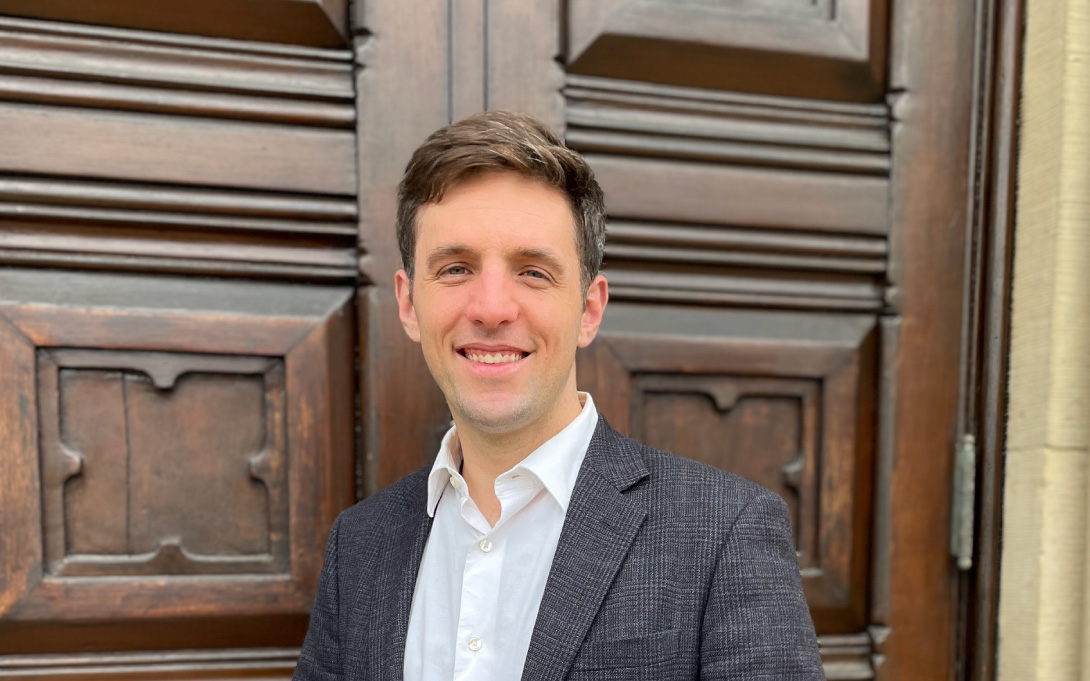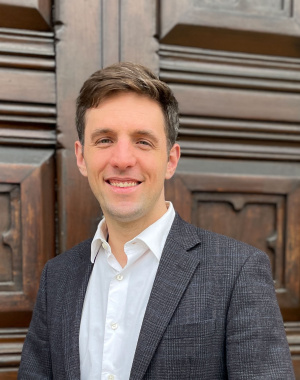
Political scientist Devin Judge-Lord focuses on how public pressure campaigns affect agency rulemaking, especially those concerning climate and environmental justice issues. He also researches legislator behavior and capacity, the role of money in politics, lobbying, and private governance.
He has built a large dataset on nearly all of the policies made by U.S. federal agencies in the past 20 years and all of the millions of public comments on these policies. He says, “If you've ever submitted a public comment to a federal agency, it's probably in my data!” Prior to his academic career, Judge-Lord worked for the Food and Agriculture Organization of the United Nations (UNFAO) as a Research Consultant and for Washington County, Oregon as a Regulatory Affairs Specialist, which he says sent him off on his path of studying bureaucratic policymaking.
Please tell us about what you’re working on right now.
There are so many things that I'm excited about. I'll just mention two:
First, it has been fun to find new ways to use my public comment dataset to answer questions about the role of public input in policymaking. For example, while most of my work focuses on environmental policy, I also recently used these data to study inequality in financial regulation and discovered many parallels. In both environmental and financial regulation, large incumbent firms (e.g., polluters or banks) have more resources than public interest groups to hire lawyers and experts to help influence regulatory policy.
Second, I'm excited about how policies related to public participation in U.S. federal agency policymaking are changing. There seems to be a lot of momentum around bringing more voices into the policy process and an interest in leaning on research to reform participatory processes. For example, the Federal Energy Regulatory Commission just established an innovative Office of Public Participation, and the White House Office of Budget and Management just published new guidance on broadening public engagement in the federal regulatory process that references some of my research.
Why do you think it is important to understand/study how public pressure influences the policymaking process in a democratic context?
When most people think about democracy, they think about elections. Free and fair elections are critical, but there is much more we can do to deepen democracy when it comes to which issues get attention, which proposals make it onto the agenda, and how laws are crafted and implemented.
Generally speaking, people have power to make change when they are organized, so organized public pressure campaigns are interesting opportunities for voice beyond the ballot box. Unfortunately, most official processes for public participation in policymaking are not designed with an eye to the organized nature of politics, so it is often unclear what role organizations play (or should play) in the policy process. It is also unclear how well pressure campaigns represent the people they claim to represent, so reforming processes for public participation requires a better understanding of how people are organized to participate and how policymakers respond to public pressure.
How did your experience working for the Food and Agriculture Organization of the United Nations (UNFAO)—prior to your academic career—inform your work?
My work for the UNFAO informed my research methods. My unit was tasked with reviewing the requirements of all of the laws about forestry in all member countries for the State of the World's Forests report. It was vastly more text and in more languages than anyone could read closely, so I began exploring quantitative approaches to analyzing and comparing policy texts. For example, tools similar to plagiarism-detection software can help show how policy ideas spread as the drafters of policy texts copy policies from other jurisdictions or model language provided by advocacy groups or international organizations. New text analysis tools have opened up new kinds of policy to systematic study, and it has been fun to help develop those research tools, even as my research now focuses more on U.S. domestic policy.
Please tell us more about your course this fall, PubPol 510: The Politics of Public Policy and what concepts you will cover.
I'm excited to get to the topic of issue framing later in the semester. I have recently been working on how some policies get labeled climate policy and others do not, and similarly, how some problems are successfully framed as environmental justice issues and others are not. The Graduate Student Instructor for the course, Caroline Leland, has a background in communications and has worked on environmental justice issues. A number of students in the class are interested in environmental justice as well, so I think we will have some rich conversations about issue-framing dynamics and environmental activism.
What are you reading or watching right now?
I'm currently reading All Our Missing Hearts by Celeste Ng and Everfair by Nisi Shawl. I had almost finished reading the collected works of Ursala K. LeGuin when my baby was born last October, and I'm looking forward to returning to her books. Next, I'm going to read The Word for World Is Forest, The Telling, and any of her short stories I've missed. My favorite author is Octavia Butler, and I am excited that they are finally making TV shows based on her work, but I haven't had time to watch them yet. I did start watching the new season of Never Have I Ever, which is fun.
